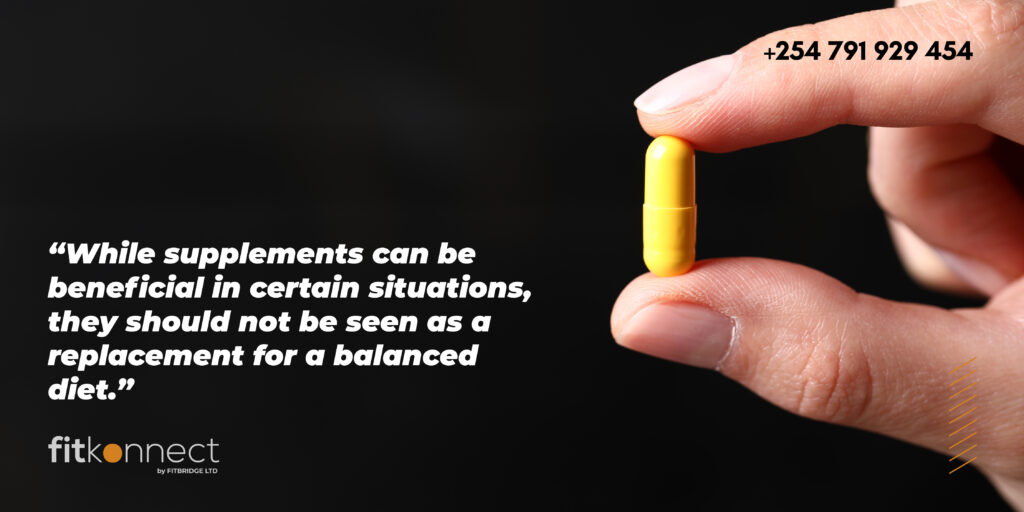
Embracing the Wisdom of Trailblazers: Harnessing Inspiration from Others
August 27, 2023
Timeless Yoga: Finding Balance, Strength, and Serenity
September 2, 2023The journey to optimal health is more than just rigorous workouts and intense training sessions—it’s also about the way we fuel our bodies. Mindful eating, a practice often associated with the culinary world, holds a significant place in fitness as well. Beyond counting calories or restricting certain foods, mindful eating revolves around making conscious choices that support your fitness goals. In this blog, we’re looking into the concept of mindful eating within the context of fitness, exploring how it can impact your performance, and discussing balanced diets, portion control, and the role of supplements.
Mindful Eating: The Foundation of Fitness

Mind Over Morsel
At its core, mindful eating in the fitness context means being acutely aware of how the foods you consume contribute to your energy, stamina, and overall well-being. It’s a shift from passive consumption to active nourishment—an understanding that every bite plays a role in your fitness journey.
Balanced Diets: Nutrient Harmony
A balanced diet refers to a way of eating that provides the body with the essential nutrients it needs to function properly and maintain good health. A balanced diet includes a variety of foods from different food groups in appropriate proportions. The goal is to ensure that the body receives the right amounts of carbohydrates, proteins, fats, vitamins, minerals, and other nutrients to support overall well-being, energy levels, and specific health goals.
Fuelling for Fitness Success
When practicing mindful eating for fitness, focus on a balanced diet that includes the right proportions of macronutrients:
1. Protein Power: Essential for muscle repair and growth. Sources include lean meats, fish, poultry, beans, and plant-based proteins like peanuts.
2. Carb Considerations: Carbohydrates provide energy for workouts. Opt for whole grains, fruits, and vegetables for sustained energy release.
3. Healthy Fats: Omega-3 fatty acids support joint health and overall well-being. Incorporate sources like nuts, avocados, and fatty fish.
Portion Control: Quality over Quantity
Mindful eating for fitness also involves portion control—serving sizes that align with your activity levels and goals. Consider these strategies:
1. Listen to Hunger: Eat when you’re hungry and stop when you’re satisfied. Pay attention to your body’s cues rather than external portion sizes.
2. Plate Composition: Divide your plate into sections—half for vegetables, a quarter for lean protein, and a quarter for complex carbohydrates.
3. Focus on the plate: Avoid distractions while eating. Focus on each bite, appreciating flavours and textures, and giving your body time to signal fullness.

Navigating Supplements: Informed Choices
Supplements refer to products that are designed to supplement or add to the diet in order to provide additional nutrients that might be lacking from regular food intake. These supplements come in various forms, such as pills, capsules, powders, liquids, and gummies, and they contain specific vitamins, minerals, herbs, amino acids, enzymes, or other bioactive compounds.
It’s important to note that while supplements can be beneficial in certain situations, they should not be seen as a replacement for a balanced diet. Whole foods provide a combination of nutrients, fibre, and other bioactive compounds that work synergistically for optimal health. Supplements are meant to complement a healthy diet and should ideally be taken under the guidance of a healthcare professional, such as a doctor or registered dietitian, especially if there are specific health goals or medical conditions involved.
Always be cautious and informed before incorporating supplements into your routine.

Enhancing, Not Replacing
Supplements can be a valuable addition to a mindful eating plan, but they should complement—not replace—whole foods. Consult a healthcare professional before introducing supplements, and consider these options:
1. Protein Supplements: Whey or plant-based protein powders can support muscle recovery after intense workouts.
2. Omega-3 Supplements: Fish oil or algae-based supplements can help maintain joint health and reduce inflammation.
3. Vitamin and Mineral Supplements: Address specific deficiencies under professional guidance. Vitamin D and calcium, for example, are crucial for bone health.
Incorporating Mindful Eating into Your Fitness Journey
1. Pre-Workout Fuel: Opt for a balanced snack or meal rich in carbohydrates and protein about an hour before exercising to maximize energy levels.
2. Post-Workout Recovery: Include a source of protein and carbohydrates to aid muscle recovery and replenish glycogen stores.
3. Hydration Awareness: Stay hydrated, as even mild dehydration can impact exercise performance and cognitive function.
Mindful eating is a powerful tool that extends its benefits to achieving your fitness goals, transforming your relationship with food from mere sustenance to strategic nourishment. By focusing on balanced diets, portion control, and the appropriate use of supplements, you’re not just fuelling your workouts—you’re supporting your body’s intricate needs for growth, repair, and overall health. Embrace mindful eating as an integral part of your fitness journey, and watch as it harmonizes with your efforts, leading to a more vibrant, resilient, and capable you.




